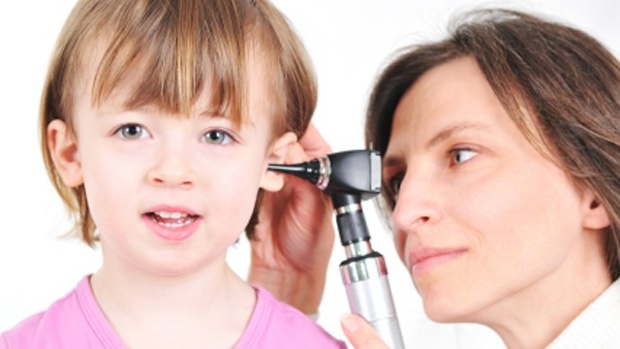How To Take Care Of Ears?
Introduction:
Hearing is one of the best blessings from nature to experience this beautiful world in a unique and profound way through sounds. Our ears not only permit us to communicate and connect with others but also make a contribution to our sense of balance and overall well-being. To make sure that we continue to enjoy harmony, it’s crucial to take good care of our ears. In this comprehensive guide, we will discuss the various components of ‘how to take care of ears’. Furthermore, it provides you with a wealth of expertise to protect and nurture your auditory fitness.
Before dwelling on the steps to take care of the ears we first know why is it important to take care of your ears. When you talk about your overall personal health we usually ignore our ears. However, your health plays a vital role in the overall health of your body. The ears are one of the 5 organs in our body playing a significant part in listening and overall balancing so here we will discuss why is it important to take care of your ears
Importance Of Taking Care Of Ears:
Hearing preservation:
Possibly the most obvious motive is to shield and preserve our ability to hear. Our ears allow us to connect with the world, communicate, and enjoy music, nature, and conversations. Listening loss can significantly impact our quality of life, making it crucial to keep our hearing abilities.
Communication:
Effective communication is important for our personal and professional life. Impaired hearing can cause misunderstandings, social isolation, and frustration for both the person with hearing loss and the people around them. By taking care of our ears, we are able to retain to interact in clear and meaningful conversations.
Safety Of Ears:
listening performs a crucial position in our safety. We rely on our ears to detect important auditory cues, along with the sound of approaching automobiles, alarms, and sirens. By preserving our hearing abilities, we can highly defend ourselves and respond to potential risks in our surroundings.
Balance and Spatial Awareness About Ears:
The inner ear not only contributes to listening but also performs an important part in maintaining stability and spatial awareness. Any disruption or damage to the internal ear can result in balance problems and vertigo, affecting our ability to move safely and comfortably.
Emotional Well-Being:
Hearing loss will have a great effect on an individual’s emotional well-being. It can cause feelings of frustration, isolation, despair, and tension. Taking care of our ears can help maintain our mental fitness and emotional equilibrium.
Professional and Academic Success:
In academic and professional settings, clear communication is one of the important areas. Listening loss can restrict one’s capability to excel in those areas. By maintaining good hearing one can optimize opportunities for success.
Quality of life:
Our ability to enjoy the pleasures of life, together with music, laughter, and the sounds of nature, is closely tied to our hearing. Listening impairment can diminish these experiences, making it crucial to take care of our ears to maintain a high quality of life.
Lengthy-term Health:
Research shows that listening loss can be related to other health issues, along with cognitive decline and cardiovascular conditions. By taking proper care of our ears, we may additionally lessen the chance of those associated health troubles.
Prevention of Ear Infections and Complications:
Proper ear care can help prevent ear infections and related complications, which can be painful and may lead to more severe health issues if left untreated.
Economic Impact:
Hearing loss can lead to reduced work productivity and increased healthcare costs. By maintaining hearing health, individuals can avoid these economic burdens.
As we discuss the importance of ear maintenance we will share some tips to take of your ears.
Ways To Take Care Of Ears:
Understanding Ear Anatomy and Function:
Before delving into ear care, it’s important to understand the remarkable anatomy and features of our ears. The ear includes 3 important components: the outer ear, the middle ear, and the inner ear. Every part plays a completely unique role in the process of hearing. The outer ear consists of the visible part of the ear (the pinna) and the ear canal. Its primary function is to gather sound waves and direct them closer to the middle ear.
The middle ear homes the eardrum (tympanic membrane) and three tiny bones known as ossicles (the malleus, incus, and stapes). These systems work together to enlarge and transmit sound vibrations from the eardrum to the inner ear. In Addition, the inner ear contains the cochlea, a spiral-formed organ packed with fluid and tiny hair cells. Those hair cells convert sound vibrations into electrical signals that the brain translates as sound.
Maintaining Proper Hygiene Of Ears:
Maintaining proper ear hygiene is a fundamental component of ear care. Contrary to commonplace practice, it’s critical to remember that the ear canal is self-cleansing. Moreover, inserting gadgets like cotton swabs can push earwax deeper into the ear canal, potentially leading to headaches. Instead, clean the outer ear lightly with a washcloth. If you suspect immoderate earwax buildup, consult a healthcare professional for safe elimination.
Protect Your Ears from Noise-Triggered Harm:
Exposure to loud noises is the main reason for hearing loss. So, protecting your ears from excessive loud noise is paramount to preserving your hearing health.
Here are some tips:
Use Ear Protection:
While in noisy environments, which includes concerts, creation sites, or whilst working loud equipment, usually wear appropriate ear protection. Earplugs and earmuffs are effective alternatives.
Limit Exposure:
Try to limit your exposure to loud noises, especially if they may be non-stop or of high depth. Take breaks in quieter areas when possible.
Monitor Volume:
When the use of headphones or earbuds, keep the volume at a secure level. The World Health Organization recommends limiting the volume to 60% of the maximum.
Safe Earbud Use and Listening Habits:
Earbuds are ubiquitous in our present-day lives, however using them incorrectly can harm your ears. Right here’s the way to use them appropriately:
Volume control:
Maintain the volume at a moderate level. So, listening at high volumes for longer durations can lead to hearing damage.
Take Breaks:
Give your ears ordinary breaks from prolonged headphone or earbud use. This could assist in preventing fatigue and decrease the danger of hearing issues.
Pick out Noise-Canceling Headphones:
Noise-canceling headphones can provide better listening at lower volumes because they block out outside noise.
Safety from Water and Ear Infections:
Prolonged publicity to water, mainly when it stays trapped within the ear canal, can result in infections like swimmer’s ear. To defend your ears:
Use water-resistant Earplugs For Ears:
While swimming or showering, use water-resistant earplugs to hold water from your ears.
Dry Your Ears:
After water exposure, ensure your ears are dry by lightly tilting your head and pulling on your earlobe to assist excess water draining out.
In case you suspect an ear infection, and are looking for a spark of scientific attention to prevent complications.
Addressing Ear Infections and Other Health Concerns:
Ear infections may be painful and might result in extreme headaches if left untreated. If you experience signs and symptoms including earache, fluid drainage, or hearing loss, seek advice from a healthcare expert promptly. Moreover, antibiotics or different treatments can be essential to solve the infection.
Avoid Smoking and Secondhand Smoke:
Smoking has been related to diverse health problems, along with hearing loss. Additionally, the chemical compounds in tobacco smoke can harm the delicate systems within the ear and reduce blood flow, which is essential for keeping ear health. In case you smoke, quitting can have huge advantages to your overall health, including your ears.
Managing Allergies and Their Impact On-Ear Health:
Hypersensitive reactions can cause infection and fluid buildup inside the ears, causing pain and potential hearing problems. Moreover, managing allergies through antihistamines, nasal sprays, or different recommended treatments can assist your ears from these problems.
Everyday Checkup Your Ears with an Audiologist:
Everyday checkups with an audiologist or an ear professional are vital for tracking your ear fitness, in particular when you have a history of ear problems or hearing loss in your own family. These professionals can perform hearing exams and offer recommendations on how to defend your ears in addition.
Conclusion:
Our ears are very important sensory organs that deserve our utmost care and attention. By using and adopting these easy but powerful techniques of ear care, you can maintain your hearing health and continue to enjoy the lovely sounds of the world around you. Furthermore, remember that prevention is key, and a little attempt in looking after your ears these days can cross an extended manner in keeping your listening to for years yet to come. So, embark on this journey to protect your auditory well-being and embrace the world of sound with open ears.







